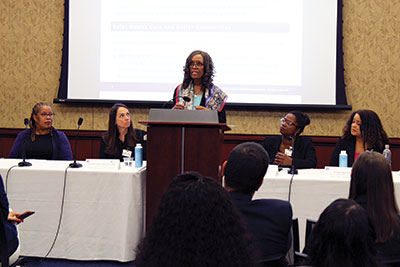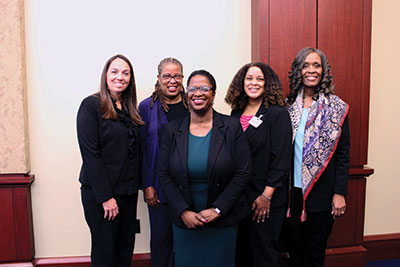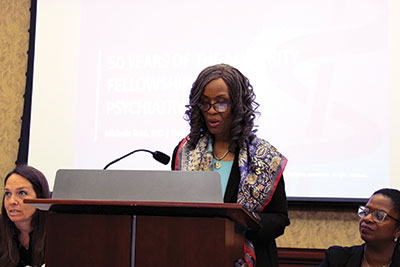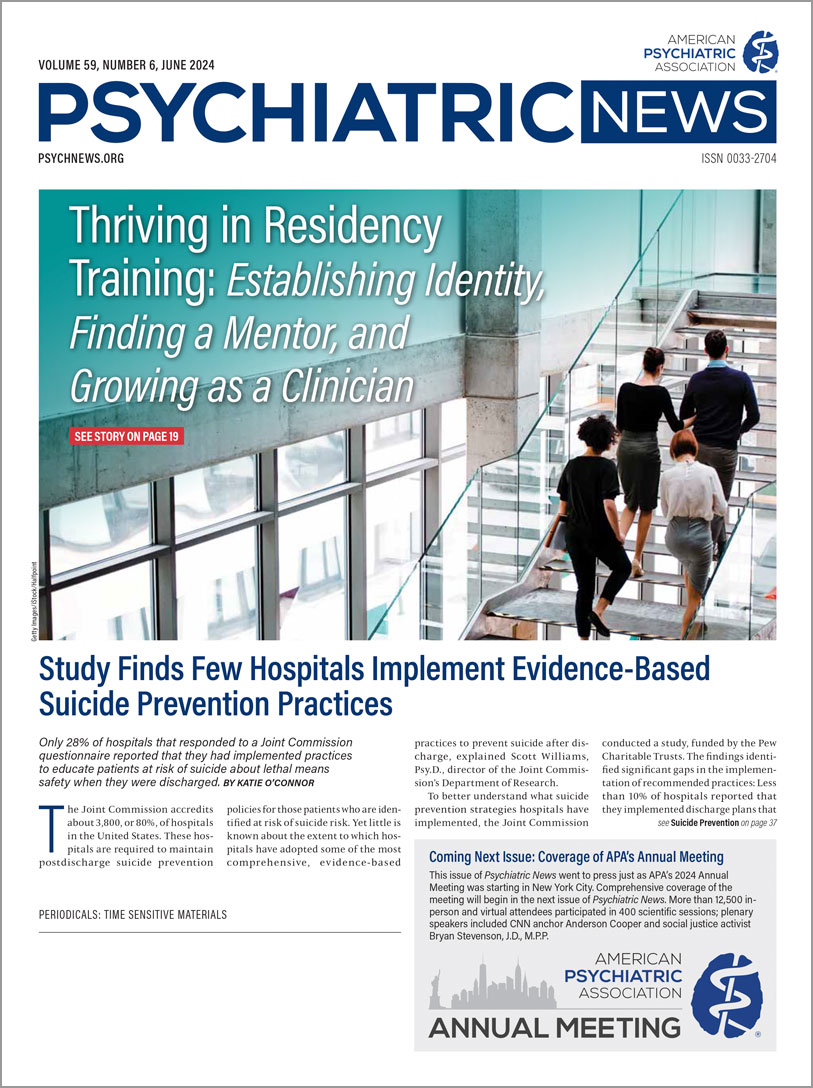Sherry Molock, Ph.D., an associate professor of clinical psychology at George Washington University, said that her participation in the Substance Abuse and Mental Health Services Administration’s (SAMHSA) Minority Fellowship Program from 1979 to 1982 was “one of the crowning jewels of my career.”
Administered by eight grantee organizations, including APA, the Minority Fellowship Program provides a one-year fellowship to master’s-level or postgraduate students who plan to work to improve behavioral health outcomes for minority communities. Depending on which grantee organization with which they work, fellows are offered scholarships, tuition assistance, professional development training, and other resources. Through APA, fellows receive funding to support a Capstone Project on mental health inequities, receive mentorship, and attend APA’s Annual Meeting, among other benefits.
“I really cannot say enough about the importance of this program,” Molock said during a congressional briefing on the program in April. “There’s no way I could have gone to school to get a Ph.D. in psychology without that funding.” She said that, often, fellows felt very isolated and alone before joining the program. “Most of us went to predominantly White institutions, and there were very few of us in those institutions. The Minority Fellowship Program was almost like a big family. It was very supportive, not just financially, but also in terms of social support.”
During the briefing, APA’s immediate past Trustee-at-Large Michele Reid, M.D., joined members of several other organizations in a panel discussion. The panel discussed the benefits of the Minority Fellowship Program and asked Congress to increase its funding from $19.4 million to $25 million for fiscal year 2025. Reid was joined by individuals from the American Nurses Association; the National Board for Certified Counselors; and the American Psychological Association Services Inc., the American Psychological Association’s advocacy arm, which hosted the event.
Reid, who is the vice president and chief operating officer at CNS Healthcare, participated in the fellowship program from 1982 to 1984. The program celebrated its 50th anniversary last year. Reid said that the program “was created to improve behavioral health outcomes for diverse populations and increase not only the number of racially and ethnically diverse psychiatrists, but also to improve the diversity of the overall behavioral health workforce.”
Reid shared that when she was a fellow, the program had a payback service requirement, which she fulfilled by working at a community health clinic in Michigan. That clinic later merged with CNS Healthcare, which is a certified community behavioral health clinic, certified through SAMHSA. “I am now the vice president and chief operating officer at the very same location where I did my repayment for my fellowship stipend,” she said. “The program has really brought me full circle.”
Her fellow speakers at the briefing agreed that Reid’s story is an example of the importance of the leadership development aspect of the Minority Fellowship Program. It allows fellows to have a broader impact on their organizations and their communities from leadership roles, they explained.
Reid noted that the program has given her lifetime access to a network of psychiatrists across the country who have also been fellows and mutually support each other. “They help with simple things,” she said. “The first time I got a contract, I had somebody to talk to and discuss how much I should ask to be paid or what should be included in my contract.”
Further, the program also emphasizes the importance of treating patients from all backgrounds, Reid said. “It’s hugely important to have psychiatrists and other professionals who look like you provide you with care, but it’s also important that the psychiatric workforce is equipped to meet the needs of all patients from all walks of life,” she said.
While the speakers at the briefing urged Congress to increase the program’s funding for the next fiscal year, they also agreed that even $25 million is not enough because the need for mental health professionals, especially those from underrepresented backgrounds, is huge.
Molock said that she is asked for referrals to mental health professionals every week, but she often doesn’t have names to give. “It breaks my heart,” she said. “I don’t like to make referrals if I don’t know that someone is taking clients, because that just creates more red tape and another runaround. Also, people are usually seeking help when they’re in crisis, and they don’t have the patience or mental energy to go to three or four different providers or clinics to ask if they’re taking clients.”
Rep. Nanette Barragán (D-Calif.) emphasized the importance of making investments in the Minority Fellowship Program. “Communities of color are disproportionately affected by mental health disparities, and yet the workforce tasked to address these disparities does not accurately reflect the populations they serve,” she said.
“Despite the strides we’ve made, there’s still a lot of work to do,” Barragán continued. “The demand for culturally competent health services is growing.” ■



